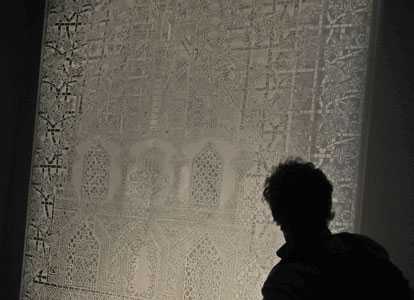International PEN and PEN Turkey held this year’s “Freedom to the Word” Literature Festival in Istanbul last weekend. Publishers, writers and interpreters discussed the “Harm of Harmful Publications” and the function of the Board for Protection from Harmful Publications.
“The Harm of Harmful Publications” was the theme of this year’s “Freedom to the Word” Literature Festival held by International PEN and PEN Turkey in Istanbul.
“Negation of obscenity is hypocrisy”
In the first session on Saturday (18 June), PEN Writers Union Secretary General Eugene Schoulgin indicated that “obscenity” was a topic discussed all over Europe but that the situation in Turkey was unique.
“In Norway, not a single book was subject to a trial throughout the past 50 years. In Europe, it is out of the question to open a trial about a book that was written 50-100 years ago”, Schoulgin stated.
She described obscenity as a part of life and claimed that the negation of obscenity was hypocrisy.
“Children should not be protected from the internet or written publications only but also from sexual abuse that is widespread all over the world. This abuse is more dangerous than the fantasies described in books”, Schoulgin remarked.
“We are acquitted but burned-out”
On 26 April, an investigation was launched into the translation of the book “The Soft Machine” written by US American writer William S. Burroughs and first published in 1961. The novel published by Sel Publishing was written in the cut-up and fold-in techniques and was one of the significant works of the “Beat Generation”.
Bilge Sancı, owner of Sel Publishing, said that numerous trials were filed against many of their books since the year 2000. They were acquitted in most of the cases but the trial procedures were back-breaking in terms of money and spirits, Sancı recalled.
“Trials are opened because we translate books that were written 50 to 100 years ago. All these books have to be seen in their historic context and Turkish people have the right to read them”, Sancı claimed.
“Keeping up the struggle”
“We as publishers will continue translating and publishing the books we want. If we said ‘this is a risky book they might sue us for’ we will play in the hands of the government. Therefore we keep up the struggle”, Sancı declared.
Interpreter İsmail Yerguz pointed out that an interpreter could not be held responsible for the content of the text as long as the content had not been changed. “The trials opened against translated books are a punishment for those people who cannot read the original because they do not know the language”.
Protection from Harmful Publications
In the second session, the participants of the panel discussed the Prime Ministerial Board for the Protection of Children from Harmful Publications which was established in its current shape during the regime of the military coup in 1980. They called for a change of the board and said that “harm” should be clearly defined.
In the beginning of the literature festival, Nevin Berktaş was rewarded with the Duygu Asena PEN Award for her book “Difficult places that challenge the faith: Prison Cells”. Berktaş was released from prison just recently.
Berktaş announced, “I am accepting this reward on behalf of the people who were killed in the 12 September prisons, in the course of death-fasts and who were murdered in the middle of the street”.
“Board members are informant and expert at the same time”
Lawyer Haluk İnancı mentioned that although the Protection Board for Harmful Publications was established in 1927, it was made more functional by the coup regime in 1986.
“The board consists of ten representatives from ministries, journalist associations and the department for religious affairs. They have two missions. One is the ex officio investigation and announcement of allegedly harmful and obscene new publications. The other one is to serve as an expert in the trials opened against these publications. So they are both informants and experts”.
İnancı underlined that the law was problematic but that there were even more problems in its application.
“No prohibition but restriction”
The lawyer referred to decisions regarding the protection of children given by the European Court of Human Rights (ECHR) and said that the international court decreed for certain restrictions rather than prohibitions.
“The ECHR accepts the fact that the government has to take certain precautions to protect children from pornographic contents. Yet, these constraints are bound to strict rules”.
“Definition of harm”
İnancı claimed that the Board for the Protection from Harmful Publications in Turkey should be abolished and replaced by a different regulation.
“With the legislation of the National Education Department, everything can be forbidden by the law. This has to be abolished. The board should be abrogated and the evaluation should be done by the judiciary. There is no clear definition of ‘harm’. First of all, the people should know what is criminal. The ones who do not abide by the law should not receive prison sentences but monetary fines” İnancı suggested.
“Protection from issue of social class”
Ragıp Zarakolu, the owner of the Belge Publishing Company, said that in the 1980, children were “protected” not only from contents related to sexuality but also to issues of social class under the label of ‘harm’.
“The Gözlem Publishing Company published children literature and books on alternative, liberal education. The company was closed because of allegedly class-related contents. After that, no other publishing company published this sort of children books”, Zarakolu emphasized. (NV/ŞA/VK)
via English :: The Harm of Harmful Publications – Bianet.


Leave a Reply